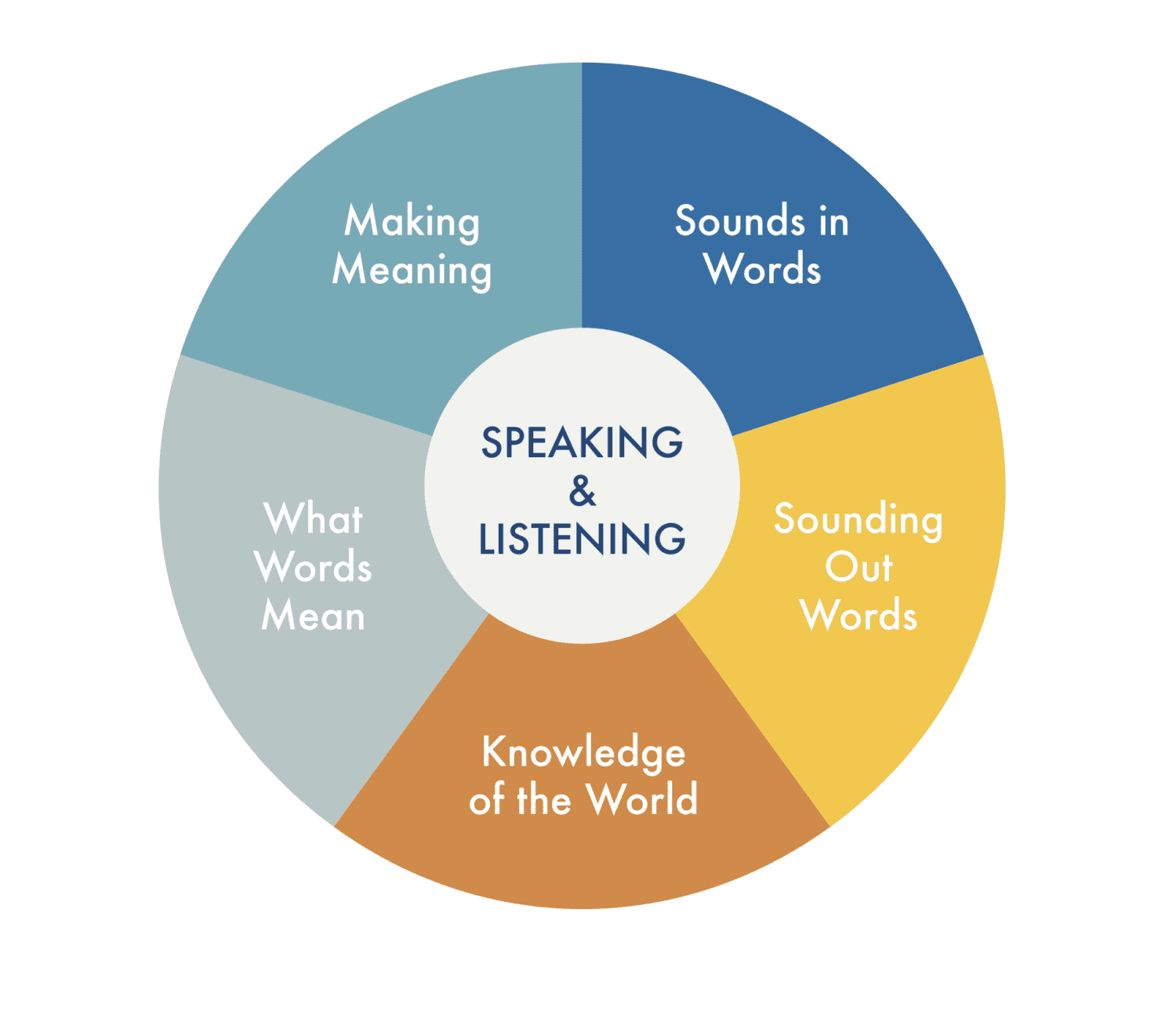Raising a reader
Parents are their children’s first teachers. There are simple, but important, things you can do to help raise your child to be a reader. Babies are born with their brains “hardwired” to learn language. Listening and speaking develop naturally but reading and writing must be learned. By speaking and reading to your children—starting at birth—you help develop their language and early literacy skills.

How Parents and Caregivers Can
Help Their Children To Read
Speaking and Listening
Speaking and listening are at the heart of literacy. You can help your children develop language skills by talking with them about everyday events, such as a trip to the grocery store. Tell your child stories and share books. Don’t be afraid to use big words. That is how s/he will learn new ideas and new vocabulary words.
Sounds in Words
Words are made up of individual sounds. Every would-be reader must be able to hear these sounds, pronounce each one individually, then put them back together again. (For example, /h/ /a/ /t/ are the sounds in hat.) You can help your child tune into individual sounds. Ask them what sound they hear at the beginning, end, or middle of a word.
Sounding Out Words
Children begin to read written words when they can match letters (written symbols) to the sounds they make. You can help your child by pointing out patterns in words (such as rhyming words, cat, fat, hat, sat). When s/he tries to read a new word, encourage them to “sound it out” instead of looking at the picture for help.
Knowledge of the World
By having different kinds of experiences, children gain facts, information, and skills. These help them understand the world around them. This, in turn, helps them make sense of what they are reading. Help your child learn about the world by engaging them in everyday experiences like cooking dinner. Take them places where they will see, hear, taste, touch, smell, and think about new things. Have fun together at a festival, parade, picnic, farmer’s market, concert, museum, zoo, ball game, or the beach. Sign up for a library card. Experience the world by sharing all kinds of books with your child and any special new words you discover.
What Words Mean
In order for a child to understand what s/he is reading, they must understand what the words mean. Children who have a large vocabulary—recognizing words and knowing their meaning/s—will become better readers and writers. You can help your child learn new vocabulary by pointing out interesting and unfamiliar words, helping them understand their meaning/s, and encouraging them to use them. Ask your child to write the word and draw a picture of it. Hang up each word on the refrigerator or wall, clip them to ribbon, or collect words in a jar. Each day ask your child to use one of the new words in a sentence. Or have them make up a story using several of the words.
Making Meaning
The ability to make meaning—that is, understand what is being read—is the goal of reading. You can help you child by checking their understanding of the text they are reading. Ask questions about information in the story—“Who?,” What?,” “Where?,” and “When?”. Questions that children need to think about—“How?,” “Why?”—are equally important. Have your child tell you the story in his or her own words.
“Once you’ve seen science-based reading instruction delivered well, you’ll want it for your kids.”
— Tyre, P. (2011). The good school. How smart parents get their kids the education they deserve. New York, NY: Henry Holt and Company, p.113.

Resources
Colorín Colorado is a bi-lingual site that provides information, activities, and advice for teachers of English language learners (ELLs) and their families.
Hanford, E. (Reporter). (2019, August 22). At a loss for words. How a flawed idea is teaching millions of kids to be poor readers. [Audio podcast]. Retrieved from https: //www.apmreports.org/story/2019/08/22/whats-wrong-how-schools-teach-reading.
Hanford, E. (Reporter). (2018, October 8). What to do if your child’s school isn’t teaching reading right? APMreports.
Reading Rockets.org provides information on how young kids learn to read, why so many struggle, and how caring adults can help. Parents and teachers can sign up for their newsletter, read blogs, receive tips, watch videos, and more. Reading Rockets is a project of the national educational service of WETA, Washington, D.C.’s flagship public television and radio station.
Is your child struggling with reading?
If you believe your child has signs of a reading difficulty, trust your instincts and be persistent in finding answers.